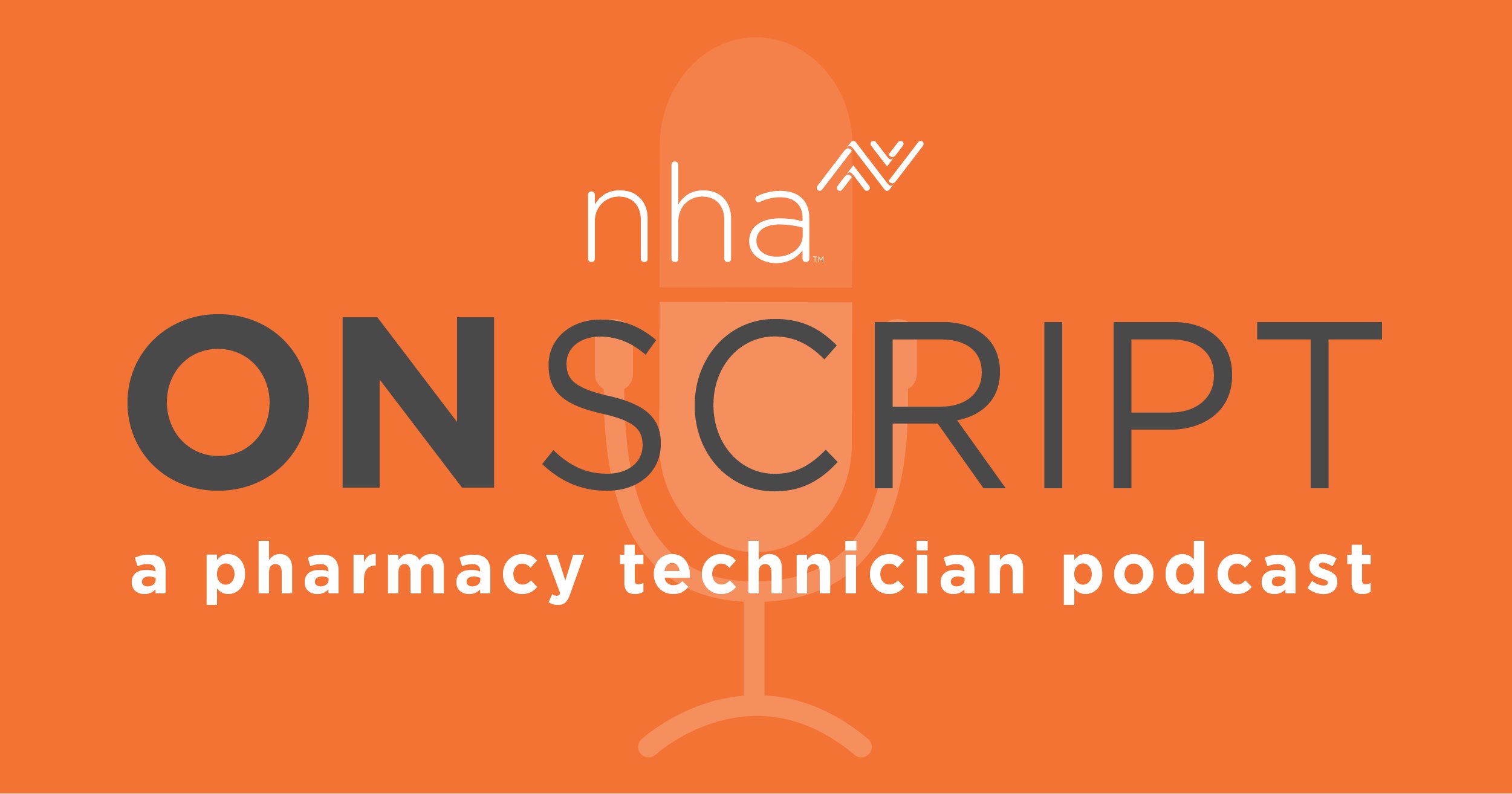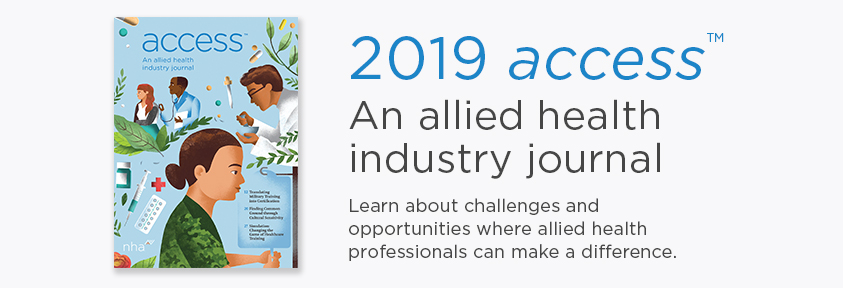Introducing Jeremy Sasser, NHA pharmacy strategist and host of OnScript with NHA, a podcast for pharmacy technicians and those who educate and train them. OnScript recently launched as part of the Pharmacy Podcast Network (PPN).
Jeremy recently started hosting and broadcasting this podcast series as a new avenue for interacting with and educating customers, sharing their point of view on meaningful topics and driving thought leadership in the pharmacy industry.
Today, we bring you a question and answer interview session where he will share why podcasts and why now as well as an overview of the content, who should listen and how you can tune in.
Who is your core audience?
Our target audience, of course, is pharmacy technicians across the US, regardless of setting, which includes in retail settings, as well as hospitals, telepharmacy and more. We are also speaking on topics relevant to professionals who support the pharmacy technician profession overall (whether a pharmacy setting or educational/academic setting).
As a member of the Pharmacy Podcast Network (PPN), we are fortunate to come into a network that has already surpassed 1 million downloads since its inception and has a regular audience of around 75,000+ listeners, most of whom are individuals involved in the pharmacy industry, either currently practicing in a pharmacy, as industry thought leaders or in leadership roles. Investors and analysts in the financial sector also subscribe to the PPN looking to glean insights into the pharmacy industry.
What kind of topics or content are you covering in the near future?
In upcoming episodes, Jessica Langley (also with NHA) and I will discuss the research findings for the pharmacy technician workforce included in this year’s publication of access. We will discuss how we obtained the data from employers and get into the implications of the findings on the future of the profession.
On another episode, I’ll be interviewing Meghann Chilcott, the CIO of Benzer pharmacy. She is an honoree of the Tampa Bay Business journal Business Woman of the Year, hosts her own pharmacy technology podcast, and also sits on the Forbes Technology Council. We will dive into how she started out as a pharmacy technician, and how she climbed all the way up to a chief executive of a rapidly growing pharmacy chain. We’ll also get into some of the technology initiatives she’s brought to Benzer, what they mean for their business, and the greater ramifications to the industry. We will also talk about the unique challenges of being a woman in leadership in today’s workforce, work-life balance with her two young boys, and how the industry can mentor and encourage women and pharm techs to pursue developing their own career path.
We also plan to address pharmacy math in an upcoming episode. We hope to have a guest pharmacy technician educator to discuss and share the unique challenges faced by students as they learn how to perform dosage calculations, and the challenges faced by instructors and trainers trying to teach this often challenging content.
Can you share more about how you’re broadcasting and who does the recording?
The podcast is available in multiple platforms via the Pharmacy Podcast Network. Myself and/or Jessica perform the interviews and recordings, trying really hard to limit the need for significant editing.
The CEO of the pharmacy podcast network, Todd Eury has been not only a great mentor for podcasting in general, but also offers us technical help. I authored the intro, but he recorded the voice actor, added music, and just really takes each recording to the next level in terms of quality.
Are the podcasts open to anyone, or just customers?
Our podcasts are open to anyone, and we’re especially trying to engage and reach our current NHA certification holders. We want our episodes to spread the good message of our organization and the positives of certification.
We also want to provide a platform for other technicians out there to share their stories, get their questions answered, and open up dialog that gets to the heart of the day-to-day struggles they face as well as the successes, innovations, and the meaningful stories that help all technicians know they’re not operating in a silo. Our thought is “whatever struggles I’m having, someone else is also having.” If we can provide a platform to bounce ideas off of each other, we can be extremely helpful.
Of course, I think the goal of any podcast, publication, radio show, or any like media is to get as many sets of eyes, or ears as possible receiving the message being conveyed to help build reputation and to share our point of view of the industry with others while providing thought leadership, value and a service.
What are you most excited about in terms of reaching and serving your clients and offering thought leadership in your industry?
The pharmacy industry is undergoing monumental changes, and it’s a profession with very low governance at the federal level, leaving it up to each and every state and their boards of pharmacy to regulate pharmacy practice in their state. This can lead to a lot of nuances and in some cases, significant differences in how practitioners (pharmacists and techs alike) are permitted to practice.
It is good for everyone if we can share the innovations and best practices from one state over to another that may be on the other side of the country and otherwise might not have access to the information. Some ideas or trends will be applicable in many states while others won’t. Having the opportunity to spread a message, broadly, across the entire spectrum of technicians practicing in the US is as exciting as it is important.
What factors contributed to choosing podcasts as a medium, rather than blogging or creating videos?
For me, I think podcasts are a great medium, if nothing else, from a mobility standpoint. People are listening while they’re getting ready for work, and even on their commute to work. You can’t, or at least shouldn’t, be reading or watching video during your morning drive to work. I personally listen to podcasts sometimes when I go to bed, when I know watching video may make it hard to go to sleep, or reading may rapidly put me to sleep… Audio that can be listened to at any time and is convenient for the listener when they want and can consume it makes this so versatile.
Lastly, I didn’t choose podcasting, podcasting chose me! The opportunity arose after speaking last year at a conference in DC when the founder of the PPN asked me if I’d be interested in hosting a podcast dedicated to technicians… how could I turn that down!?




